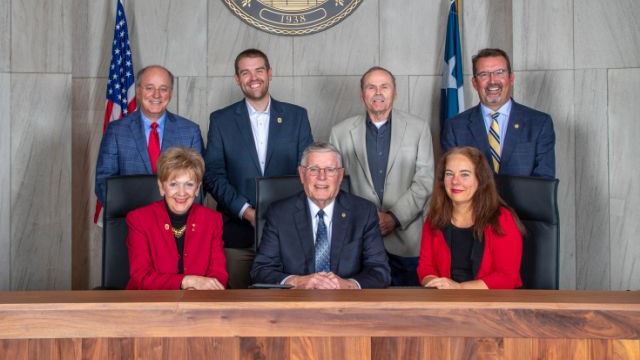
The College Station city council has adopted its platform for the new legislative session.
But the vote was 6-1, as Bob Yancy disagreed with two positions…to oppose a revenue and/or tax cap of any type and legislation that would negatively expand appraisal caps.
Yancy was involved in a compromise in a third position. Currently, appraised values of vacant commercial buildings are less than when the building is being used. The original staff recommendation that regardless of whether the building is being used or not, the value should be the same.
The council unanimously agreed to language that “reflect a more accurate calculation of property appraisal values.”
Click below to hear comments from the January 12, 2023 College Station city council meeting.
City of College Station’s 2023 legislative package, reflecting one change approved by the city council on January 12, 2023:
The 2023 Legislative Program is a guide for City of College Station (“City”) positions and priorities.
The purpose of the City’s legislative efforts is to serve the citizens and businesses of College Station by advocating for policies which will be in the best interest of the College Station community. Many significant decisions affecting Texas cities are made by the Texas Legislature, and the number of city-related bills as a percentage of total bills filed has increased every session over the last twenty years. During the 2021 session, more than 2,000 bills were filed which would have affected Texas cities in some substantial way.
LOCAL CONTROL
The City maintains that citizens and businesses are best served by policies made at the level of government closest to the people. It is the elected members of the city council who best understand the needs and expectations of their communities. Therefore, the City will seek to preserve home rule authority by opposing bills which will allow the state to preempt municipal authority or erode the City’s authority to govern locally.
FINANCE
Municipal revenue is derived from sources such as property taxes, sales taxes, right-of-way revenues, service fees, and court fines. In order to provide services to the citizens and businesses of a City it is essential the City be assured of a predictable and sufficient level of revenue. Therefore, the City will oppose state mandates which do not allow the City to provide a stable source of funding to meet the needs of the City’s citizens as approved by City Council.
The City will support legislation which will:
- reflect a more accurate calculation of property appraisal values,
- require mandatory disclosure of real estate sales prices,
- authorize a council-option city homestead exemption expressed as a percentage or flatdollar amount,
- establish expenditures of Community Development Block Grant Funds by cities as a governmental function.
The City will oppose legislation which will:
- impose a revenue and/or tax cap of any type,
- negatively expand appraisal caps,
- impose new property tax or sales tax exemptions which substantially erode the tax base,
- erode the ability of a city to issue debt,
- erode authority of a city to be adequately compensated for the use of its rights-of-way, limit or prohibit the authority of city officials to use municipal funds to communicate with legislators, or use outside agencies to communicate with legislators.
WATER RIGHTS
As the population and economy of Texas grows there will be additional demands on the State’s natural resources. One of the most concerning of these resources is groundwater. Under Texas’ existing right to capture policy, which creates a “law of the biggest pump”, municipalities may see their water resources literally drained from under them as large industrial users seek access to the same groundwater sources.
The City will support legislation which will:
- establish the prioritization of water rights based on the date at which an entity’s claim to the groundwater was filed with the State of Texas, similar to the priority date system of permitting used to regulate access to surface water, allow a municipality to count their service territory as part of an area legally controlled as far as acreage and drilling wells.
ELECTRICITY
The continuous and uninterrupted production and distribution of energy is vital to the health, and wellbeing of the community, as well as the growth of the local economy.
The City will support legislation which will:
- preserve local regulatory authority,
- harden the State’s electric grid against blackouts,
- mitigate the cost and liabilities of the outage event caused by Winter Storm Uri from being passed on to cities and City residents.
GROWTH & DEVELOPMENT
Local governments bear a responsibility to provide core services for the overall health and wellbeing of their citizens. As a vibrant, growing community, the need for additional public safety,
transportation, and basic infrastructure resources in College Station is significant.
The City will oppose legislation which will:
- erode municipal authority related to development matters, including annexation, eminent domain, zoning, regulatory takings, building codes, tree preservation, and short-term rentals.
erode municipal authority over the management and control of rights-of-way, including by state of federal legislation.
PUBLIC SAFETY
The City will support legislation which increases existing, or creates new, grant program funding to provide financial assistance to local governmental law enforcement agencies for public safety resources; including legislation to support the use and the purchase of body cameras and associated data storage costs.
